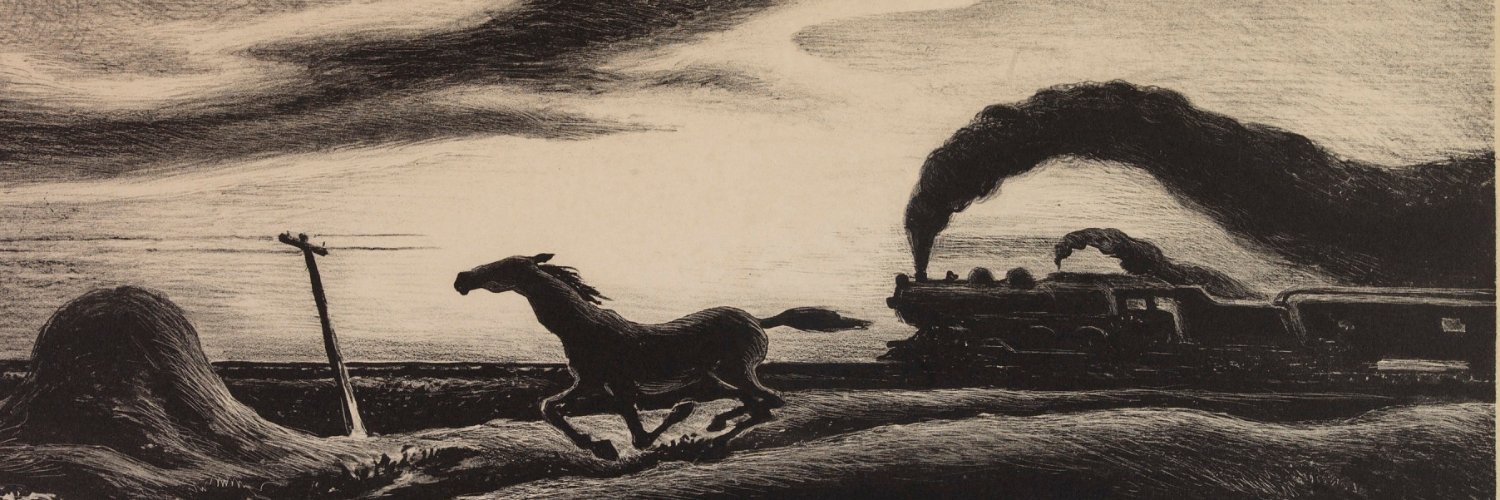
Ariel Ron
@arielronid
ag, econ & political history @SMU // director, Clements Center for Southwest Studies // book: Grassroots Leviathan (Johns Hopkins UP 2020) http://bit.ly/2CjHK1G
I've got a new article just out in the AHR: "When Hay Was King: Energy History and Economic Nationalism in the 19c US." The energy people know about this work but I hope it also reaches my Civil War era colleagues. 1/ doi.org/10.1093/ahr/rh…

"The China challenge isn't what American policymakers think it is. It's not primarily about security threats or unfair trade practices—it's about Chinese companies making better products for less money, and winning hearts and minds in the process." musgrave.substack.com/p/oh-no-i-betr…
Any 19c historians here know about how letter press books worked? Did you have to write out the letter twice or have the sheet you'd send under the thin letter press paper (does it have a specific name)? for the ink to bleed through?
currently reading. pretty interesting! however, the escheresque cover image doesn't promise solid realness

CFP (please circulate): "Lonesome Dove at 40: McMurtry, Mythmaking, and the Reimagining of the American Southwest," co-hosted by the Clements Center for Southwest Studies and SMU's English Department via the "Narrative Now" initiative. DEADLINE: Aug 1.



So. I've been on field manual labor crews where most of my coworkers were convicts. I've also worked with a lot of tech companies on automating farms. And this press conference is incredible. This woman hasn't the foggiest clue what she's on about.
Brooke Rollins on farm laborers: "There will be no amnesty. The mass deportations continue, but in a strategic way. And we move the workforce toward automation and 100% American participation, which with 34 million able-bodied on Medicaid we should be able to do fairly quickly."
We have a cover and a release date! Feed the People! will be out February 17, 2026 with Basic Books. Feel free to pre-order a copy at any of the sellers in the below link. hachettebookgroup.com/titles/jan-dut…
Wait until these people learn about North Dakota's state-owned bank and mill.
The "12-day war" shows the limited value of nuclear deterrence. Israel is a nuclear state and it still got hit with ballistic missiles. So I'm not sure Iran has any more of a clear interest in going nuclear than it did before.
Huh, I wonder what changed in the last year to get Texas' risk of blackouts from 11% to less than 1%?
Texas’ risk of power blackouts is the lowest that it has been in years. The power grid has more power and is more resilient than it has ever been. dallasnews.com/business/energ…
For the record, before the 1830s or so--that is, during the US founding era--all of New York City's food markets were publicly owned. eh.net/book_reviews/f…

The test for Mamdani will be if he can govern well, but I think that Trump won’t let him.
Reading Richard Bensel's dissertation and it's a kind of extended take on Marx's contention that "the modern state is nothing but a committee for managing the common affairs of the whole bourgeoisie," except that regional rather than class interests are the material substratum.
“The class of political belief systems which possess logical integrity and completeness is empty in America. Further, the construction of a logically consistent system which would justify or support the use of the terms ‘liberal’ or ‘conservative’ is doomed to failure.”
Call for papers (please circulate): Politics, the State, and American Capitalism in the Civil War Era Special issue of the Journal of the Civil War Era Deadline is April 25. journalofthecivilwarera.org/2025/03/call-f…


New working paper from me and Sofia Valeonti about the economic logic behind John Sherman's political and policy choices through the 1860s and 1870s as he shepherded the US through a series of monetary and fiscal transformations. hal.science/hal-04998888
The thing is, even if farmers get a compensatory payoff, the damage to export markets will be lasting. All the anxiety on this side is mirrored by purchasers abroad who will be looking for other suppliers. Brazil is well placed to take a chunk out of US ag exports to China.

Who’s going to OAH? Also, anyone interested in Clements Center fellowships or leading a Clements Center symposium who’d like to talk with me, please do get in touch.
A second incoherence: first in the Sunbelt (NC, TX), then in the Rustbelt (WI) the knowledge economy's basis in the uni of research, tech & commercialization created a vicious intra-state urban-rural political-economic struggle.
One thing that's becoming clear from how the protests are being handled is that, contrary to what undergrads and many faculty believe, the liberal arts college is not at the core of the university anymore. The modern university is being shown to be an incoherent institution.
